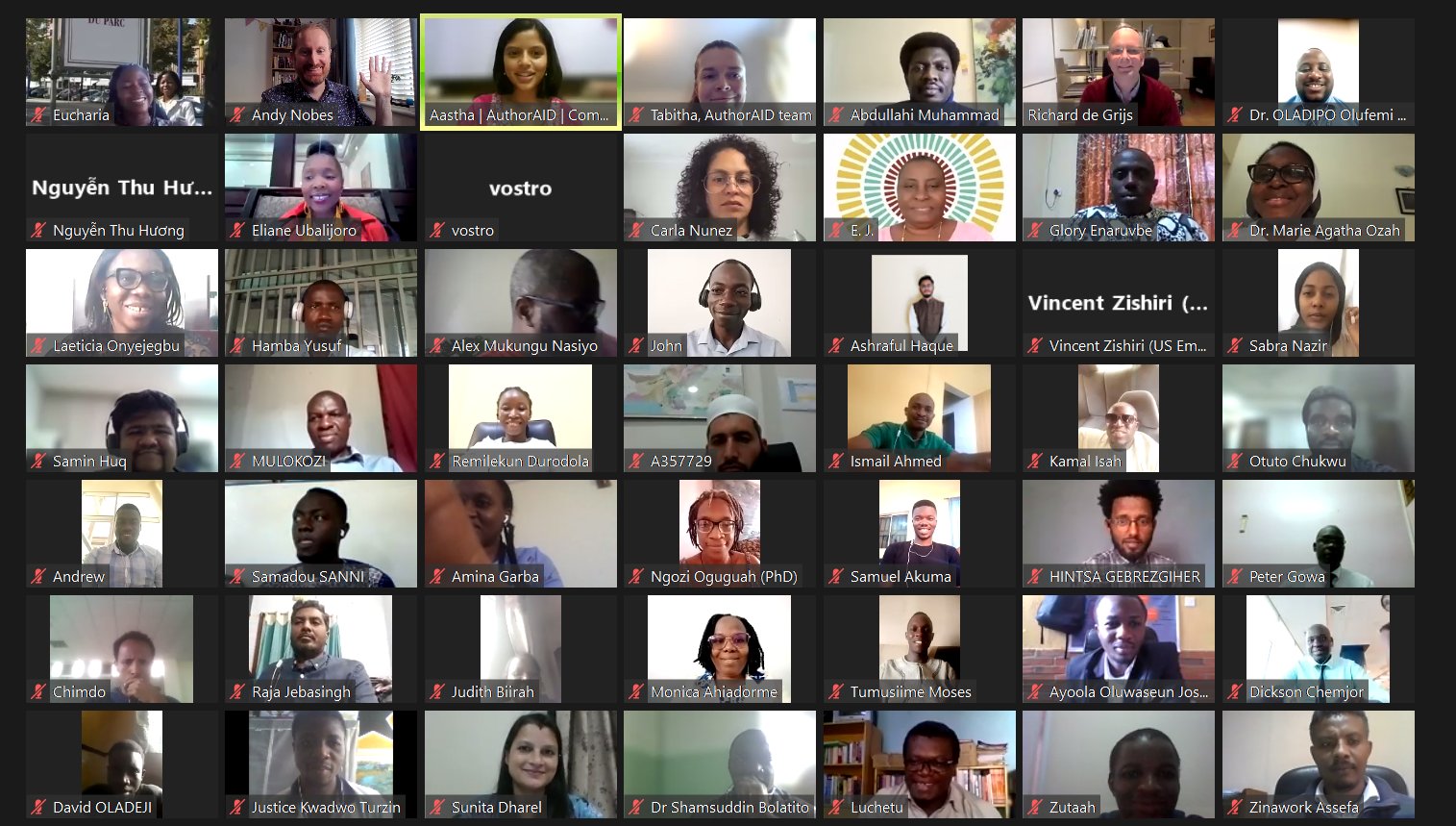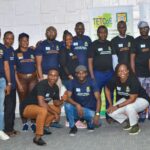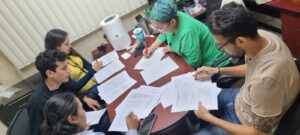
AuthorAID flourishes as a community-led platform for Southern researchers
The figures are stark – over the past 20 years, fewer than a sixth of articles in top development journals were by Southern researchers. It is exactly for this reason that AuthorAID was established. AuthorAID is designed specifically to ensure that early career researchers across the global South can publish their work and advance their careers.
Since its launch in 2007, AuthorAID has grown to become a thriving community of early career researchers, with over 15,000 members from 175 countries. Over 20,000 have completed our online courses, nearly half of them women. This article is based on a series of interviews with INASP staff, Associates and partners.
Making a difference to early careers
Last year, more than 7,500 people joined our MOOCs to gain new skills and many hundreds have joined webinars to hear from experienced researchers about how to write proposals, navigate publishing, understand ethical issues, and look after their mental health. And through the community platform members have made new connections, found mentors, secured advice to help them publish, and grown in confidence.
An evaluation conducted in 2022 demonstrated significant increases in confidence amongst those who have completed a course. AuthorAID has also helped more researchers to make their work visible to the world: thanks to AuthorAID, the average number of publications generated by Nigerian participants rose from one in 2019 to three in 2022. A member in South Africa explains the difference the platform has made for them: “AuthorAID gave me access to numerous mentors from different fields as an early career researcher. Some of these mentors worked with me during the proposal development stage until completion. Others were helpful in other ways such as reading manuscripts, career tips and linking me with other faculty that they thought would be useful for my progress.”
A community collaborating across the globe
In 2022, the AuthorAID team made significant strides towards greater community leadership. AuthorAID’s community engagement lead, Tabitha Buchner, explains: “The success of AuthorAID depends on the involvement of its members so we developed a clear community model to show members the many different ways they can get involved.”
The move is designed to ensure that AuthorAID is responsive to the needs and wants of its worldwide network of members, most of whom are in, or from, the Global South, and generally get people more involved to grow the support that the community can provide.
Growing engagement with members
The team introduced a new community area on the website which shows visitors all the different ways that they can get involved. A new recognition system of ‘badges’ was also added to member profiles to recognise member’s achievements and contributions. This could be recognising a member as a ‘journal club’ leader, webinar speaker, or as a contributor to the blog, which is managed and edited by the community itself.
The aim was to bring the community aspect of AuthorAID to the forefront of the member experience and make the most of the rich experience and skills that members have to share. Members can also explore the members database to find research partners or mentors in their field.
AuthorAID’s journal clubs – led by community members – have also continued to thrive, so much so that they’re at capacity so we’re now hoping to launch new clubs in 2023.
We also asked members how we could root AuthorAID better in the communities in which they live and work and the result is a series of new community hubs. Read more about AuthorAID’s new Nigeria National Research Hub.
Shifting ownership to southern partners
In line with INASP’s ethos of shifting ownership to our southern partners, INASP has also appointed two community administrators – Aastha Subedi (Nepal) and Otuto Chukwu (Nigeria) – to assist with the day to day running of AuthorAID. Aastha works on external communications and online community events, while Otuto concentrates on organisation and administration.
Otuto is a licensed pharmacist and social impact innovator from Nigeria, with more than eight years’ experience in health systems and policy research. Meanwhile, Aastha Subedi is an early career public health researcher and an undergraduate student of public health, based in Nepal. Being both early career researchers from the Global South and AuthorAID members themselves, Otuto and Aastha know well what needs the community have and how to help address them.
The administrators work closely with the INASP team and alongside AuthorAID’s steering group – comprising 13 stewards, experienced researchers from across the globe.
The stewards are at the heart of the AuthorAID community – contributing to strategic decision-making, content creation, and the running of MOOCs. Several AuthorAID stewards also became INASP associates in 2022.
Enhancing knowledge ecosystems
AuthorAID steward Buna Bhandari explains: “AuthorAID’s community-led network concept has significantly enhanced the Global South’s knowledge ecosystem. Through the community administrators, AuthorAID could run smoothly… It indirectly supported the community administrators’ capacity development and enhanced the community’s ownership.”
Another move last year to bolster the community was the introduction of a new monthly networking event, Teatime with AuthorAID. The events were initiated and convened by the stewards and other community members and alongside AuthorAID’s well-established monthly webinars, have helped to bring a virtual community into regular conversation.
Interview by Sarah Holmes


 Previous Post
Previous Post Next Post
Next Post


